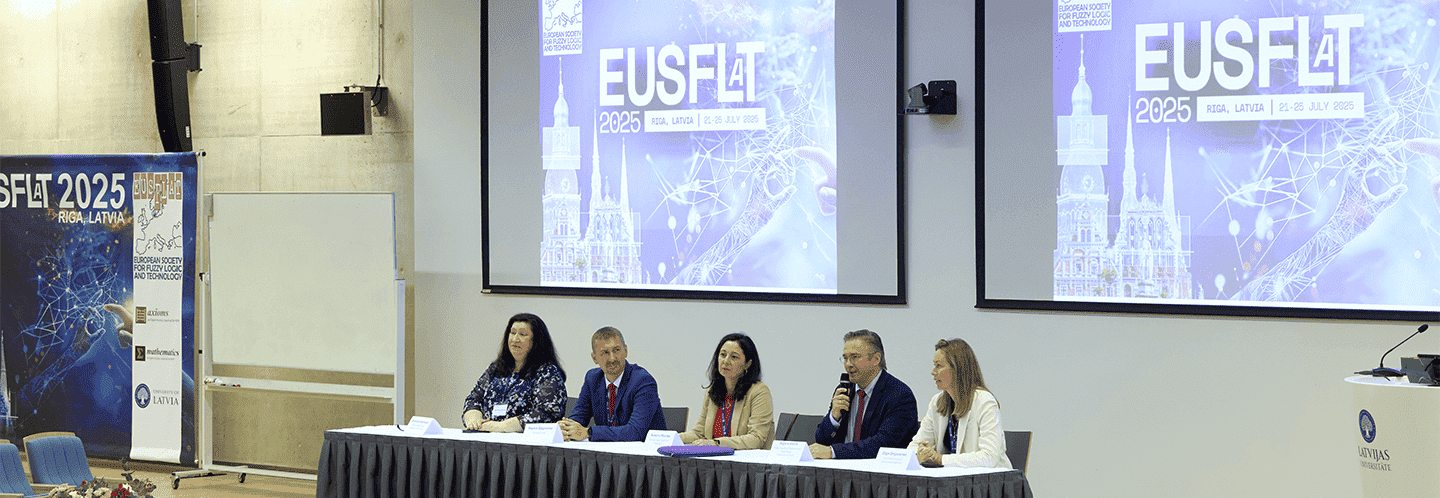
Ilia Stepin wins the EUSFLAT award for the best European thesis, which recognizes a CiTIUS work for the third time
The European Society for Fuzzy Logic and Technology (EUSFLAT) awards the researcher graduated from the research center of the University of Santiago de Compostela (USC) the 'Best PhD Thesis Award 2023' for a research work that enhances explainability and trust in artificial intelligence systems.
The researcher Ilia Stepin has been awarded the best doctoral thesis prize of the year 2023 by the European Society for Fuzzy Logic and Technology (EUSFLAT) in recognition of the work developed throughout his doctoral thesis, carried out entirely at CiTIUS (Singular Research Center on Intelligent Technologies of the University of Santiago de Compostela - USC). The Society presented the award on July 24 in Riga (Latvia), during the gala dinner of the EUSFLAT 2025 biennial congress.
With this distinction, there are now three theses from CiTIUS recognized with this prestigious international prize in the last decade, previously received by researchers Alejandro Ramos (2016), and Andrea Cascallar (2022), the first woman to receive this award in Europe. An achievement that consolidates the USC research center as a European benchmark in the investigation of more understandable, transparent, and human-centric Artificial Intelligence (AI) systems.
An AI you can ask… and understand
Ilia Stepin's thesis addresses one of the most important questions in current AI: how can we trust an automated system if we don't understand how it made a decision? His proposal consists of the development of argumentative conversational agents, capable of clearly and reasonably explaining why a given response was produced, and what would have had to change in the data for the result to have been different.
These types of explanations, known as factual and counterfactual, allow the user to explore the system's reasoning and understand its internal logic, even without technical knowledge. “The novelty of the approach,” says the awarded researcher, “lies in the system adapting the explanations to the user's profile.” “Using linguistic models and principles of argumentation theory, it is able to improve communication between the AI system and the person,” explains Ilia.
The thesis also introduces an innovative metric to measure the perceived complexity of explanations, allowing the automatic adjustment of language, detail, and presentation format. To validate these developments, Stepin conducted various studies with real users, whose results show that the explanations generated by the system were rated as useful, understandable, and relevant by a wide variety of participants.
The work, titled ‘Argumentative Conversational Agents for an Explainable Artificial Intelligence’, was successfully defended at CiTIUS (co-funded by the European Union through the Galicia ERDF Programme 2021–2027) on September 22, 2023, under the supervision of center researchers José María Alonso and Alejandro Catalá.
Open science and international projection
The advances of the thesis have had a high impact on the scientific community. Its publications have been cited more than 200 times in Web of Science, nearly 300 in Scopus, and over 500 in Google Scholar. This impact, the quality of the work, and its innovative approach have been revealed as key factors for the granting of the EUSFLAT award, a prize that the European Society for Fuzzy Logic and Technology has awarded since 2010, selecting each year the best doctoral thesis in fuzzy logic and related technologies among those defended across Europe. The award recognizes scientific excellence, the applied value of the results, and the future projection of the awarded work.
“Ilia has made a very valuable contribution to a central problem in current AI: how to make it understandable, reliable, and useful for everyone,” highlights José María Alonso, co-director of the thesis. “His work demonstrates that it is possible to combine technical solidity with a clear orientation towards social impact, something we consider fundamental in our research approach.”
For his part, Alejandro Catalá wanted to highlight the environment that made it possible: “This award not only recognizes Ilia's individual effort but also the training and research model we promote at CiTIUS.” “We advocate for more transparent and human-centered AI,” he continues, “and this thesis is an excellent example of how to advance in that direction with open science, innovation, and commitment.”